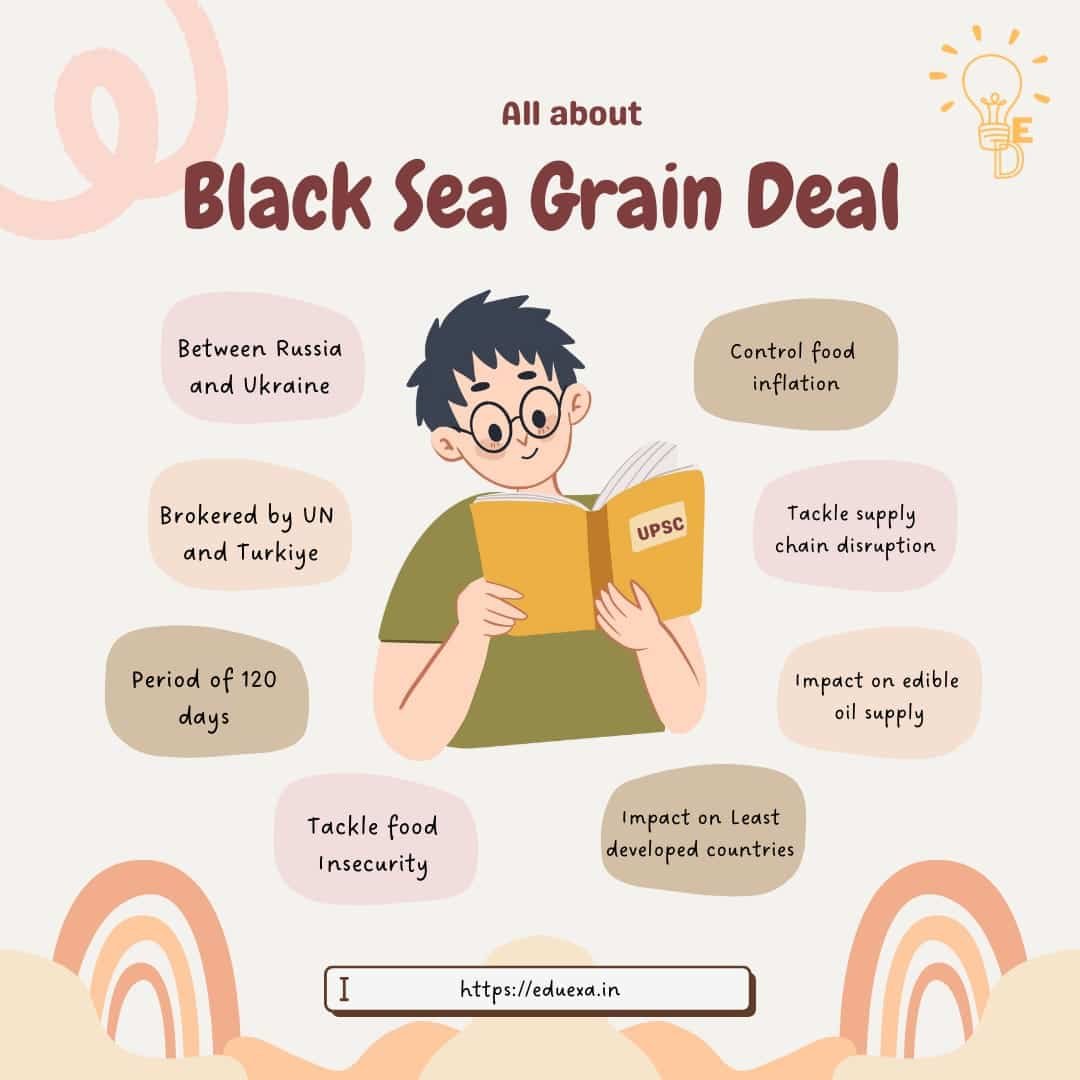Black Sea Grain Initiative
Why in the news?
The G20 has called for the immediate revival of the Black Sea grain initiative to ensure that developing and least developed countries, particularly those in Africa, do not suffer.
Previously, Russia withdrew from the deal claiming that the promises made under the deal have not been met.
Importance of Black Sea

- Black sea surrounds important nations such as Ukraine, Romania, Russia, Turkiye and Georgia.
- It provides a cost effective export route to both Russia and Ukraine.
- Access to black sea opens the way for access to the Mediterranean sea and further connectivity with southern European states and African states.
What is black sea grain initiative?
The Black Sea Grain deal was brokered by the United Nations and Türkiye in July last year between Russia and Ukraine.
The deal aims to tackle escalating food prices from supply chain disruptions due to the effective blockage of the Black Sea.
It provided a safe maritime humanitarian corridor for Ukrainian exports (particularly for food grains) from three of its key ports, namely, Chornomorsk, Odessa, and Yuzhny/Pivdennyi.
The deal was for a period of 120 days with an option to extend or terminate. It was extended two times.
Need for the deal
Tackle Food inflation – The Black Sea Grain Initiative endeavours to tackle the rising food prices emanating from supply chain disruptions because of the Russia-Ukraine War.
As per the UN office of Humanitarian Affairs, approximately 9.8 million tonnes of grains have been shipped since the initiative commenced.
The supply chain situation in the markets has eased which resulted in a drop in prices.
The Black Sea Grain Initiative has been credited for having made a huge difference in the global cost of living.
Impact of closure of the deal
Inflation in food prices:
Grains and oilseeds prices have already risen in response to Russia’s decision and are expected to rise further.
Impact on Ukraine’s farmers:
Blockage of black sea and no compatible alternative would result in Increased logistical costs which would further mean the farmers will have to sell at a discounted rate.
Unequal impact on the poor:
The World Food Programme, and Food and Agriculture Organization warn that acute food insecurity is escalating, affecting as many as 828 million people worldwide.
Food Insecurity:
LDCs are disproportionately at risk of food insecurity, with several countries facing complex and prolonged humanitarian crises.
Shortfall of fertilisers:
It may intensify as Russia and Belarus are one of the world’s largest sources of mineral fertilisers (14% of the world).
Impact on India
- Impact on edible oil in India: India imports sunflower and soybean oils to meet domestic demand. Since the suspension of the deal, sunflower oil prices have risen.
- India imports its fertilisers from Russia and this war has affected its supply.
Way forward
- International Cooperation is needed to resolve the Russia Ukraine conflict.
- Strengthening of global food supply chain- The nation needs to adopt cognitive planning, AI driven predictive analytics, advanced track and trace and blockchain technologies to improve global supply chains.
You may also like:
What is EWS full form and what is difference between UR Category and EWS?
What is India’s Neighbourhood First Policy?
Read the Species in News Here.




Pingback: UPSC Practice Questions Prelims 2024 -Eduexa